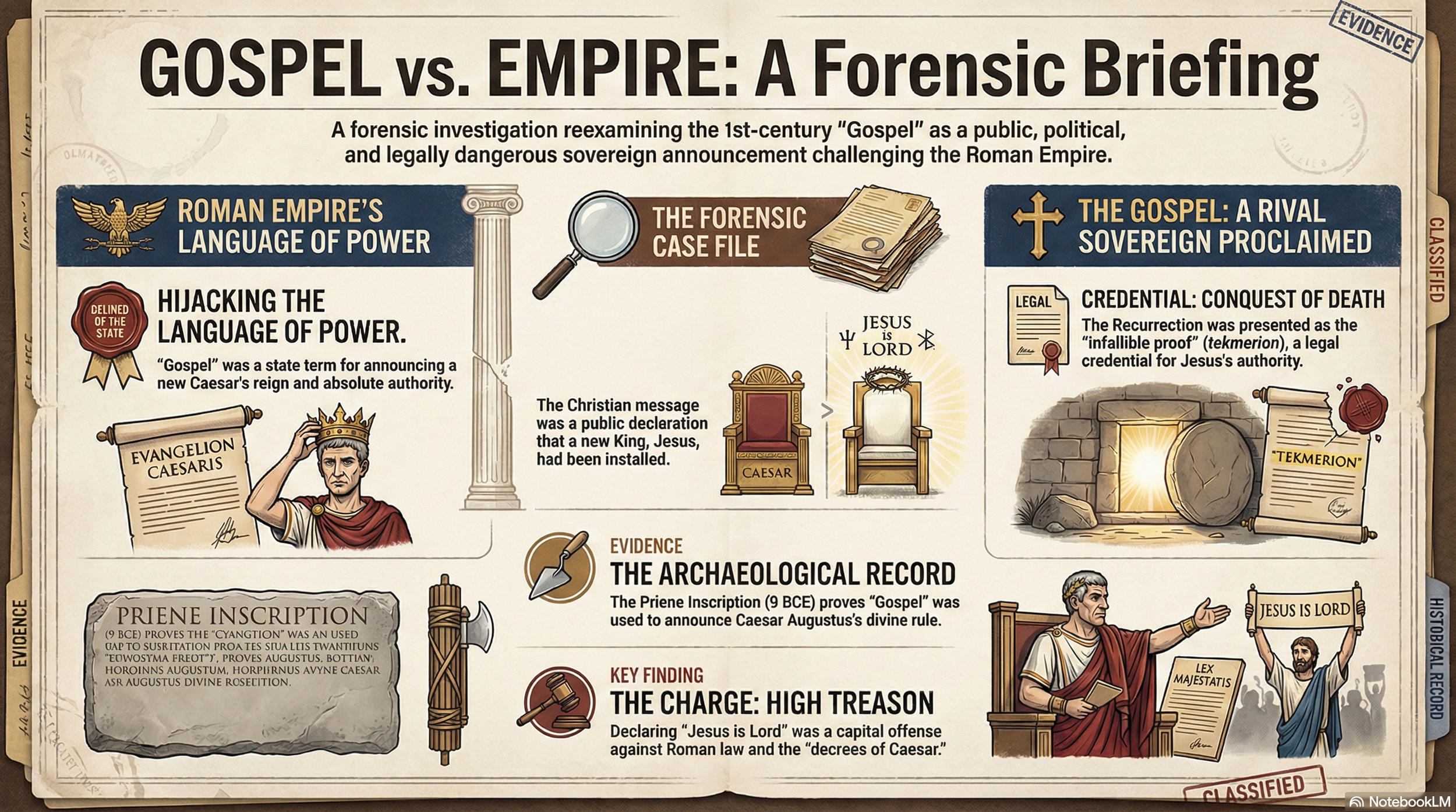The Briefing Note:
The Gospel is not a suggestion—it is a Sovereign Announcement. In the 1st century, an evangelion was the official news that a new King had taken the throne. In the Book of Acts, the apostles weren't sharing a private religious opinion; they were acting as heralds for a global "Strategic Pivot." They announced that a new Sovereign—Jesus—had been installed as Lord of all, a claim backed by the forensic evidence of the Resurrection.
Forensic Fixed Points:
The Sovereign Evidence
The Imperial Hijack: In 9 BCE, the Priene Inscription declared the "Gospel" began with Augustus Caesar’s birthday. The Apostles intentionally highjacked this political term to announce a rival King.
The Treason Trigger: Proclaiming "King Jesus" wasn't just a religious claim; it was a direct violation of the Roman Edicts of Caesar (AD 11), which criminalized predicting a change in sovereignty.
The Legal Proof (Tekmerion): The Resurrection was presented as a "demonstrative proof"—a technical standard of evidence that challenged Rome's ultimate legal weapon: the power of death.
Case File Questions:
To "Cross-Examine the Evidence" in the Hub, use these questions:
The Political Challenge: Why was the word "Gospel" considered a direct threat to Caesar’s authority?
The Credentialing Document: How does the Resurrection function as a legal "Fixed Point" for the mission's validity?
The Sovereign Confession: What were the legal consequences of declaring "Jesus is Lord" in a Roman colony?
The Global Intelligence: How did this single announcement travel from a small room in Jerusalem to the heart of the Roman Empire in one generation?

